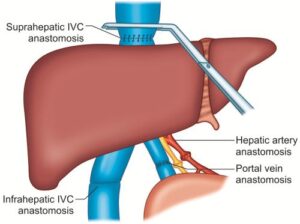
The Best Foods to Eat After Laparoscopic Surgery
Worry is a common companion to surgical interventions, underscoring the importance of educating patients about their dietary options after laparoscopy to foster calmness. Due to its minimal invasiveness and recovery time, laparoscopy is frequently chosen for operations such as hernia repairs, gallstone removal, anti-reflux measures, hysterectomies, and bariatric surgeries. The procedure involves making small incisions in the abdomen.
Focusing on recuperation after your procedure is crucial. As you begin to recuperate, it’s recommended to gradually reintroduce your usual activities as soon as possible. The dietary regimen prescribed post-surgery will consider your existing health conditions and the specific surgery performed. Your medical professional will provide comprehensive advice regarding the best food choices and what to steer clear of after your laparoscopic surgery.
How Laparoscopic Surgery Works
Known in the medical field as a less intrusive form of surgery, the laparoscopic technique relies on a slender tool known as a laparoscope. This device is characterized by its small camera and illumination device at the end, which is inserted into the body via a tiny cut. Surgeons are then able to observe the body’s internal workings on a display screen, offering them a detailed perspective that does away with the need for large surgical incisions typical of conventional methods. These innovative surgical instruments permit the execution of complex medical procedures externally, without direct hand contact with internal body spaces. A notable benefit of this surgical approach is the substantial decrease in damage to bodily tissues, attributing to smaller incisions.
Optimal Diet Choices Post-Laparoscopy

It’s crucial to eat healthily to recuperate more quickly from this significant surgery. Eating the proper foods helps prevent diseases like high blood sugar and constipation. They’re also essential for boosting your body’s protein levels, which will speed up healing. Consequently, the food to eat after laparoscopy and what to avoid eating are as follows:
Start with a liquid diet initially
Begin your recovery journey with a liquid diet. It’s advisable to stick to liquids immediately after surgery. If approved by your healthcare provider, you may gradually transition back to solid foods. A liquid diet encompasses various clear liquid options such as milk, yogurt, pudding, broth, and soup. Additionally, you can incorporate strained creamy soups, custard, sherbet, and desserts like cream of rice. However, exercise caution and avoid foods containing seeds and nuts. If you’re lactose intolerant, opt for lactose-free alternatives.
Fruits and vegetables
Post-surgery, physicians often advise incorporating fresh fruits and vegetables into your diet as they play a vital role in the recovery process. While canned or frozen foods aren’t inherently unhealthy, it’s important to discern between nutritious choices and processed options. For instance, opt for fresh broccoli over canned broccoli soup.
It’s worth noting that consuming increased amounts of fruits and vegetables may exacerbate gas-related discomfort, although this discomfort usually subsides within a few days. If abdominal cramping persists, consider reducing your intake level accordingly.
Fiber is crucial for optimal health
Ensure your recipe includes ample fiber as it’s vital for the healing process. High-fiber foods not only support recovery but also help prevent issues like constipation, which is common post-procedure. Constipation can exacerbate pain and potentially lead to hospital readmission, so it’s important to incorporate fiber-rich foods like psyllium husks into your diet and consume them regularly.
Reduce your intake of foods that may cause constipation
The most typical consequence following surgery is constipation. Opioids and other opioid medicines are mostly to blame for this problem. In the days following surgery, this medicine is routinely used to relieve pain. Contrarily, certain foods aid in preventing constipation. Other foods, on the other hand, may aggravate constipation. The following foods are what to avoid eating after laparoscopic surgery takes as they can result in constipation:
Avoid or limit the consumption of:
- Cheese;
- Packaged foods;
- Red meat;
- Dehydrated or dried foods;
- Dairy products like milk.
Additionally, steer clear of sugary sweets such as candies, cakes, and pastries.
Low-fat dairy options
Consuming dairy products low in fat can offer numerous health benefits, particularly in aiding post-surgical recovery due to their rich protein content. However, it’s worth noting that some individuals experience digestive discomfort, such as constipation, when consuming dairy post-surgery. Additionally, certain dairy products have been linked to increased pulmonary secretion, potentially exacerbating chronic coughing.
If you’re able to tolerate dairy without adverse effects, opting for low-fat varieties may be advantageous. These options include skim milk, yogurt, and cottage cheese. However, it’s advisable to avoid low-fat cheese to optimize your body’s defense mechanisms. By choosing low-fat dairy options, you can still reap the nutritional benefits while potentially minimizing any associated discomfort or health risks.
Lean Protein Sources

Incorporating lean protein into your diet offers a multitude of benefits, promoting muscle growth, satiety, and overall health. While lean meats like turkey, pork, and chicken are well-known sources of lean protein, the spectrum extends beyond conventional options.
Seafood emerges as another excellent source, providing not only protein but also essential omega-3 fatty acids. However, caution is advised with red meat due to its higher saturated fat content, which may contribute to health concerns like constipation.
For those adhering to vegetarian or vegan diets, numerous plant-based alternatives abound. Texturized vegetable protein, beans, tofu, almonds, and tempeh stand out as rich sources of protein, offering versatility and nutritional value without reliance on animal products. By diversifying protein sources, individuals can meet their dietary needs while enjoying a variety of flavors and textures.
Conclusion
Ensuring a smooth recovery and fostering both physical and emotional well-being following laparoscopic surgery involves mindful consideration of dietary choices. While it’s essential to grasp post-surgery dietary guidelines, listening to your body’s hunger cues is paramount. This attentiveness allows for intuitive eating and supports optimal healing.
Understanding which foods to avoid post-surgery is crucial for preventing complications and promoting recovery. Prioritizing nutrient-dense options is key, as they provide essential vitamins and minerals vital for healing and overall health. Incorporating a variety of nutritious foods into your diet is beneficial, but individual needs may vary. Consulting with your healthcare provider ensures personalized guidance tailored to your specific health requirements. By prioritizing mindful eating and seeking professional advice when needed, you can navigate your post-surgery dietary journey with confidence and promote your overall well-being.
FAQs
Following surgery, begin with a liquid diet comprising clear fluids such as water, broth, and apple juice. As advised by your doctor, gradually introduce more substantial liquids like milk, pudding, and strained creamy soups once you’re ready.
You can transition to solid foods as soon as you feel comfortable, typically starting with soft, easily digestible options such as fresh fruits and vegetables. Over time, as your recovery progresses, you can gradually reintroduce your regular diet.
To mitigate constipation, incorporate high-fiber foods into your meals, such as whole grains, legumes, and vegetables. Ensuring adequate hydration and avoiding foods known to cause constipation, like cheese and red meat, can also be beneficial.
Yes, it’s advisable to steer clear of foods that may lead to constipation or discomfort, including dried or dehydrated foods, cheese, packaged foods, and high-sugar sweets. If you experience any dairy intolerance, consider limiting dairy product consumption as well.

